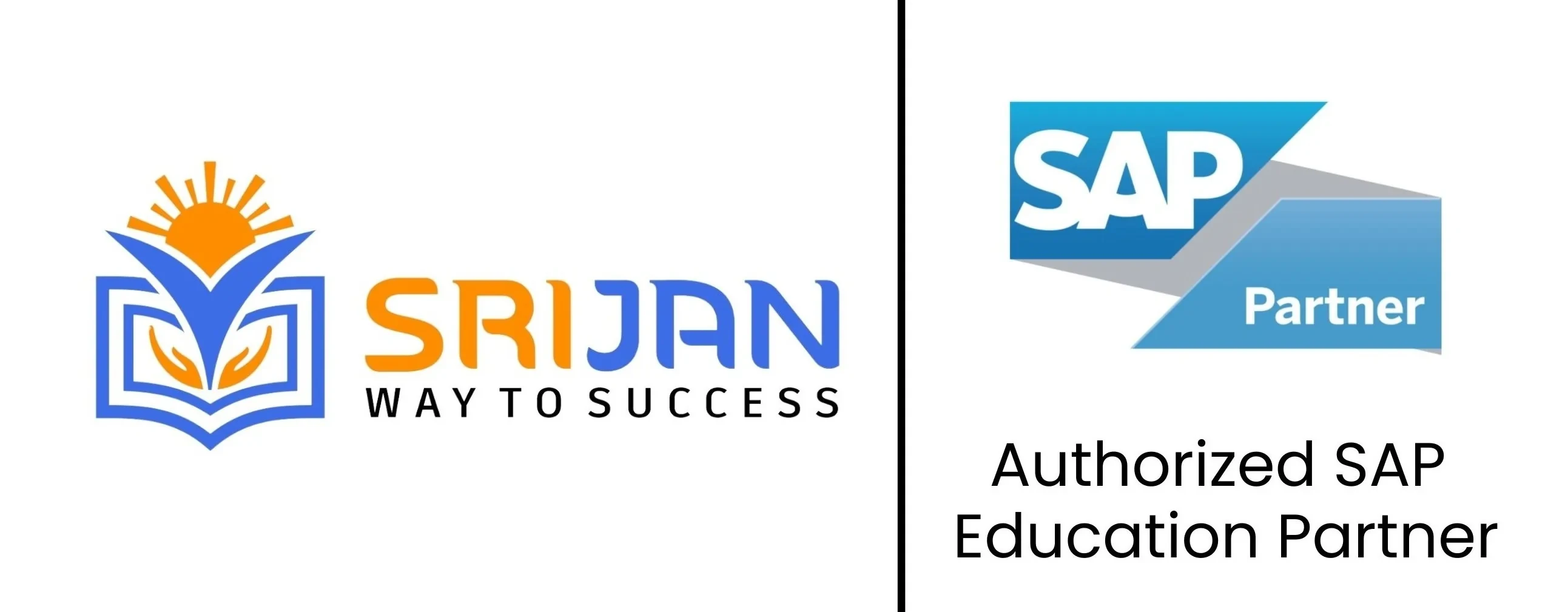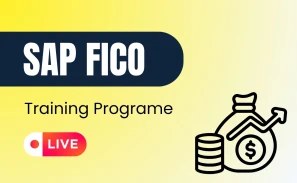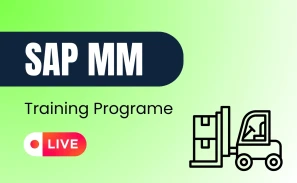SAP S/4HANA Sales Training || SAP S/4HANA Sales certification Training || SAP S/4HANA Sales Online training || SAP S/4HANA Sales self-paced training || SAP S/4HANA Sales Instructor-Led training
Key Features of Training:
- 30 Hrs Instructor-led Training
- Mock Interview Session
- Project Work & Exercises
- Flexible Schedule
- 24 x 7 Lifetime Support & Access
- Certification and Job Assistance
SAP S/4HANA Sales:
SAP S/4HANA Sales is a module within the SAP S/4HANA suite designed to streamline and optimize sales processes. It empowers businesses with real-time insights, advanced analytics, and efficient order management. With integrated functionalities for lead management, quotation creation, order processing, and invoicing, SAP S/4HANA Sales enables organizations to improve customer engagement and enhance their sales strategies. The module supports omni-channel sales, enabling seamless interactions across various touchpoints. It also facilitates integration with other SAP modules for end-to-end business processes. By leveraging SAP S/4HANA's in-memory capabilities, businesses can gain a unified view of sales data, enabling informed decision-making and better customer service. SAP S/4HANA Sales aims to drive revenue growth, increase operational efficiency, and provide a personalized experience to customers.
Prerequisites: Who can attend SAP S/4HANA Sales Training?
- Basic Understanding of SAP
- Sales and Business Process Knowledge
- Technical Proficiency
- Basic Computer Skills
- Educational Background
- Motivation and Learning Goals
- Good Communication Skills.
Responsibilities of SAP S/4HANA Sales Consultant:
- Requirement Analysis
- Solution Design
- Implementation and Configuration
- Customer Relationship Management
- Integration
- Data Migration
Course Benefits:
- Job opportunities
- Promotion opportunities (Salary Hike)
- Increased productivity
- Improved decision-making
- Gain in-demand skills
What is future of SAP S/4HANA Sales Consultant?
- Customer Experience Enhancement
- Advanced Analytics and AI
- Data-Driven Decision Making
- Sales Process Automation
- Integration with Emerging Technologies
- E-Commerce and Online Sales
The fee for SAP S/4HANA Sales can vary depending on several factors such as the location, duration of the course, training format, and level of expertise. SAP offers various training options for S/4HANA Sales, including instructor-led courses, e-learning courses, and virtual live classrooms.
For More details you can Register
SAP S/4HANA Sales Certification FAQ's:
1. What is SAP S/4HANA Sales Certification?
A: SAP S/4HANA Sales Certification is an official recognition by SAP that validates a candidate's expertise in configuring and implementing SAP S/4HANA Sales functionalities to optimize sales processes.
2. Why should I consider getting SAP S/4HANA Sales Certified?
A: SAP certification enhances your skills, validates your expertise, and increases your credibility as a SAP S/4HANA Sales professional. It can also open up new job opportunities and potentially lead to higher earning potential.
3. What are the prerequisites for SAP S/4HANA Sales Certification?
A: Prerequisites can vary depending on the specific certification level and the training provider. However, having a basic understanding of sales processes and SAP concepts is recommended.
4. How can I prepare for the SAP S/4HANA Sales Certification exam?
A: Prepare by taking official SAP training courses, practicing hands-on exercises, studying relevant documentation, using practice exams, and reviewing study materials provided by SAP.
5. What is the format of the SAP S/4HANA Sales Certification exam?
A: The exam format typically includes multiple-choice questions, scenarios, and practical exercises. The exact format may vary based on the specific certification level.
6. How can I register for the SAP S/4HANA Sales Certification exam?
A: You can register for the exam through the SAP Training and Certification website or through authorized training partners.
7. Is the SAP S/4HANA Sales Certification exam difficult?
A: The difficulty level depends on your preparation and familiarity with the SAP S/4HANA Sales module. Adequate preparation can increase your chances of success.
8. How much does SAP S/4HANA Sales Certification cost?
A: Certification costs vary based on the level and type of certification. Refer to the SAP Training and Certification website for the most up-to-date pricing information.
9. Is SAP S/4HANA Sales Certification valid globally?
A: Yes, SAP certifications are recognized globally and demonstrate your expertise regardless of your location.
10. How long is the SAP S/4HANA Sales Certification valid?
A: SAP certifications are typically valid for a certain period, after which you may need to renew them through recertification exams or other requirements.
SAP S/4HANA Sales Certification:
SAP S/4HANA Sales Certification is a formal recognition provided by SAP to individuals who demonstrate their expertise in configuring and implementing the sales functionalities within the SAP S/4HANA environment. This certification validates the candidate's ability to effectively work with SAP S/4HANA Sales module and optimize sales processes to meet business objectives.
Here's an overview of SAP S/4HANA Sales Certification:
Certification Levels: SAP offers different levels of certification, such as Associate, Professional, and Specialist, each catering to specific roles and levels of expertise.
Certification Modules: The certification covers various aspects of SAP S/4HANA Sales, including but not limited to:
- Lead and Opportunity Management
- Quotation and Order Management
- Contract and Subscription Management
- Pricing and Discount Management
- Customer Relationship Management
Prerequisites: Prerequisites can vary based on the specific certification level and module. Typically, having a basic understanding of SAP concepts and sales processes is recommended.
Preparation: To prepare for SAP S/4HANA Sales Certification, candidates can take official SAP training courses, practice hands-on exercises, study relevant documentation, use practice exams, and refer to study materials provided by SAP.
Exam Format: The certification exam usually consists of multiple-choice questions, scenarios, and practical exercises. The format may vary based on the certification level and module.
Benefits: SAP S/4HANA Sales Certification offers several benefits, including enhanced career opportunities, increased earning potential, validation of skills, and recognition within the industry.
Validity: SAP certifications are typically valid for a specific period, after which candidates may need to renew their certification through recertification exams or meeting specific requirements.
Registration and Cost: Candidates can register for the certification exam through the SAP Training and Certification website or authorized training partners. The cost varies based on the level and type of certification.
SAP S/4HANA Sales Curriculum:
1. Introduction to SAP S/4HANA Sales:
- Overview of SAP S/4HANA Sales functionalities and benefits.
- Key differences between SAP S/4HANA Sales and previous versions.
2. Customer Engagement and Management:
- Lead and opportunity management.
- Account and contact management.
- Customer segmentation and targeting.
3. Quotation and Order Management:
- Configuring sales quotations and orders.
- Order processing and fulfillment.
- Pricing determination and discount management.
4. Contract and Subscription Management:
- Managing long-term customer contracts.
- Subscription-based sales and services.
5. Product and Catalog Management:
- Managing product master data.
- Configurable products and variants.
6. Pricing and Revenue Optimization:
- Defining pricing strategies and conditions.
- Pricing simulations and analysis.
- Promotions and discounts.
7. Sales Analytics and Reporting:
- Creating sales reports and dashboards.
- Analyzing sales performance and trends.
8. Customer Relationship Management (CRM) Integration:
- Integrating sales processes with CRM modules.
- Enhancing customer engagement and loyalty.
9. Advanced Sales Techniques:
- Cross-selling and upselling strategies.
- Sales forecasting and demand planning.
SAP S/4HANA Sales Interview Questions and Answers:
1. What is SAP S/4HANA Sales, and how does it differ from previous SAP versions?
A: SAP S/4HANA Sales is a module within SAP S/4HANA that focuses on optimizing sales processes. It differs from previous versions with its in-memory capabilities, simplified data model, improved user experience, and real-time analytics.
2. Can you explain the lead-to-cash process in SAP S/4HANA Sales?
A: The lead-to-cash process encompasses lead generation, opportunity management, quotation creation, order processing, delivery, and billing. It tracks the entire sales cycle from the initial lead to final revenue generation.
3. How do you handle pricing and discounts in SAP S/4HANA Sales?
A: Pricing and discounts are managed using condition techniques. Various pricing conditions like discounts, surcharges, and taxes can be configured based on customer groups, materials, or specific conditions.
4. What is the significance of integration between SAP S/4HANA Sales and CRM modules?
A: Integration enhances customer relationship management by providing a 360-degree view of customers. It allows seamless information exchange between sales, marketing, and customer service teams.
5. Can you explain how SAP S/4HANA Sales supports subscription-based services?
A: SAP S/4HANA Sales enables organizations to manage subscription-based services through contract and subscription management functionalities. It automates billing, renewals, and revenue recognition.
6. How do you handle lead and opportunity management in SAP S/4HANA Sales?
A: Leads are potential sales opportunities that are tracked and qualified. Opportunities represent potential sales deals. The system helps manage these through stages, probability, and tracking activities.
7. What is the purpose of sales analytics and reporting in SAP S/4HANA Sales?
A: Sales analytics and reporting provide insights into sales performance, trends, and customer behaviors. It enables informed decision-making and adjustments to sales strategies.
8. How does SAP S/4HANA Sales contribute to improving the customer experience?
A: SAP S/4HANA Sales enhances customer experience by providing a unified view of customer interactions, personalized offerings, efficient order processing, and responsive service.
9. How does SAP S/4HANA Sales handle complex pricing strategies?
A: SAP S/4HANA Sales supports complex pricing strategies by allowing the configuration of condition records and price determination based on various criteria such as quantity, time, and customer segmentation.
10. Can you explain the integration of SAP S/4HANA Sales with logistics and finance modules?
A: Integration ensures seamless end-to-end business processes. For example, sales orders trigger delivery processes in logistics and generate financial transactions in finance modules.
11. What are some challenges you might face when implementing SAP S/4HANA Sales?
A: Challenges can include data migration, process alignment, user adoption, system configuration, and ensuring the solution aligns with business goals.
12. How do you manage the transition from legacy systems to SAP S/4HANA Sales?
A: Careful planning, training, change management, and user involvement are crucial for a smooth transition and ensuring users are comfortable with the new system.
13. How can SAP S/4HANA Sales contribute to improving sales forecasting accuracy?
A: By analyzing historical sales data and trends, SAP S/4HANA Sales can provide more accurate sales forecasts, helping organizations optimize inventory and production planning.
14. Explain the concept of configurable products in SAP S/4HANA Sales.
A: Configurable products allow customers to customize a product's attributes, features, and options according to their preferences. SAP S/4HANA Sales facilitates this through variant configuration.
15. How do you handle cross-selling and upselling in SAP S/4HANA Sales?
A: Cross-selling involves suggesting related products to customers, while upselling suggests higher-end versions of products. SAP S/4HANA Sales can use product bundling and recommendations to achieve this.
16. Can you discuss the importance of sales analytics for sales performance improvement?
A: Sales analytics help track key performance indicators, identify trends, and assess the effectiveness of sales strategies. This information enables organizations to refine their sales approach.
17. What is the role of a sales order in SAP S/4HANA Sales?
A: A sales order is a document that captures customer purchase requests, specifying products, quantities, prices, and delivery dates. It initiates the fulfillment process.
18. How do you handle the integration of SAP S/4HANA Sales with external systems like e-commerce platforms?
A: Integration interfaces such as APIs facilitate data exchange between SAP S/4HANA Sales and external systems, ensuring consistent product information, prices, and inventory.
19. Can you explain how SAP S/4HANA Sales supports real-time order tracking and status updates?
A: SAP S/4HANA Sales provides real-time visibility into order status, shipment tracking, and delivery information, allowing customers and sales teams to stay informed.
20. How can SAP S/4HANA Sales contribute to a seamless omnichannel customer experience?
A: SAP S/4HANA Sales enables consistent customer interactions and order processing across various channels, such as online, mobile, and in-store, leading to a unified customer experience.
21. How do you handle sales forecasting in SAP S/4HANA Sales?
A: Sales forecasting in SAP S/4HANA Sales involves analyzing historical sales data, market trends, and customer behaviors to predict future sales. This aids in inventory management and resource planning.
22. Can you explain the concept of revenue recognition in SAP S/4HANA Sales?
A: Revenue recognition in SAP S/4HANA Sales is the process of accounting for revenue as goods or services are delivered to customers. It ensures accurate financial reporting and compliance with accounting standards.
23. How can you configure SAP S/4HANA Sales to handle complex sales document structures?
A: SAP S/4HANA Sales allows you to configure different types of sales documents such as quotations, sales orders, contracts, and invoices with various item categories, text types, and pricing conditions.
24. What is the role of the SAP Fiori user interface in SAP S/4HANA Sales?
A: SAP Fiori provides a modern, user-friendly interface for SAP applications, including SAP S/4HANA Sales. It enhances the user experience by offering responsive design, easy navigation, and personalized dashboards.
25. How does SAP S/4HANA Sales contribute to better collaboration between sales and other departments?
A: By integrating sales processes with other departments like finance, logistics, and marketing, SAP S/4HANA Sales facilitates smooth information exchange, reducing delays and improving overall efficiency.
26. How can SAP S/4HANA Sales support the management of sales teams and territories?
A: SAP S/4HANA Sales enables defining and assigning sales territories, managing sales quotas, and tracking sales team performance, ensuring equitable distribution of workloads and targets.
27. Can you discuss the importance of accurate customer master data in SAP S/4HANA Sales?
A: Accurate customer master data is essential for personalized customer interactions, accurate order processing, and effective sales reporting. SAP S/4HANA Sales relies on reliable customer data.
28. How does SAP S/4HANA Sales handle returns and cancellations of orders?
A: SAP S/4HANA Sales allows the creation of return orders and cancellations. It updates inventory, triggers reverse billing processes, and ensures proper accounting treatment for returned goods.
29. What role does the SAP Cloud Platform play in extending SAP S/4HANA Sales functionalities?
A: SAP Cloud Platform allows organizations to develop and deploy custom applications and extensions that complement and enhance SAP S/4HANA Sales capabilities, addressing specific business needs.
30. How do you ensure data security and compliance in SAP S/4HANA Sales?
A: SAP S/4HANA Sales includes role-based access controls, data encryption, and compliance features to protect sensitive customer and financial information, ensuring adherence to regulatory requirements.
Participants will have 24/7 access to our online lab, providing hands-on experience with SAP S4HANA Sales tools and scenarios.
This includes server access to S/4 HANA 2023 for 1 year, ensuring you have ample time to practice and apply your skills in a real-world environment.
With this extended access, you can work on projects, explore advanced features, and solidify your understanding of SAP S4HANA Sales in the latest SAP S/4 HANA version.















